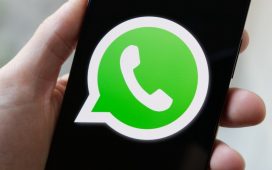
Last week witnessed a series of significant events unfold on social media, leaving many people intrigued yet uncertain about the details. Many people know that something significant happened, but are not entirely sure about the details. Don’t worry, we’re here to break it down for you.
It all began on Sunday when countless Twitter users worldwide noticed an unexpected message appearing when they refreshed their Twitter applications or web browsers: “Rate limit exceeded.” Confusion spread, and no one seemed to have a clear answer until Elon Musk, the billionaire founder of X Corp (the parent company of Twitter), took to Twitter to shed light on the situation. He explained that Twitter was implementing limitations on the number of posts users could see each day in response to excessive “data scraping.”
Now, let’s delve into what “data scraping” entails and why Musk and Twitter, Inc. found it crucial to address. Data scraping refers to the process of collecting information from a website and organizing it into a spreadsheet. Analysts leverage this information to study and process data, create personalized user profiles, segment users, deliver targeted content, and make informed decisions based on the scraped data.
While data scraping itself isn’t inherently bad, it raises important concerns regarding privacy, legal implications, and intellectual property rights. Collecting personal information about internet users without their consent can lead to significant issues.
Returning to the events of last week, as soon as Musk confirmed the intentional view limits, millions of Twitter users expressed their discontent. Hashtags like #TwitterHasFallen trended worldwide, and many users, decided to step away and wait for the storm to pass.
However, amid the chaos, someone saw an opportunity. Mark Zuckerberg, the billionaire businessman renowned for creating Facebook, acquiring WhatsApp and Instagram, and housing these platforms under the umbrella of Meta Platforms, Inc., announced Meta’s plan to launch a text-based conversation app to rival Twitter.
To understand the significance of this announcement, we must acknowledge the numerous attempts made over the years to compete with Twitter, none of which succeeded.
Even after former US President Donald Trump’s ban from Twitter, his alternative platform, Truth Social, has garnered just over 2 million users in under two years. Similarly, Jack Dorsey, Twitter’s former Co-Founder and CEO, introduced BlueSky, marketed as an “initiative to develop a decentralized social network.” Though the app has been downloaded over 375,000 times, current estimates suggest it has only 50,000 active users, likely due to the invite-only system.
At its peak, Twitter amassed a user base of 368 million active users and generated $4.4 billion in revenue. However, with the intentional rate-limiting incident on Sunday and the launch of the Threads app on Wednesday, analysts anticipate a decline in these numbers.
Notably, Threads has already made waves, surpassing initial projections by reaching 1 million users within just 1.5 hours. CNN even published an article referring to Threads as the potential “Twitter Killer.”
To put the significance of the time and number of users into perspective, it took electricity 46 years to reach 50 million active users, the internet itself took 7 years, and Facebook, the largest social media platform with 3 billion users (representing 37% of the world’s population), took 4 years to achieve the same milestone. Threads, which launched in the United States on Wednesday and globally on Thursday, reached 50 million users by Friday morning.
Clearly, these numbers are important and we all need to pay attention.
Oluwole Onemola is a digital communications expert and policy analyst. He tweets @Onemola and spins threads @OnemolaOlu.












